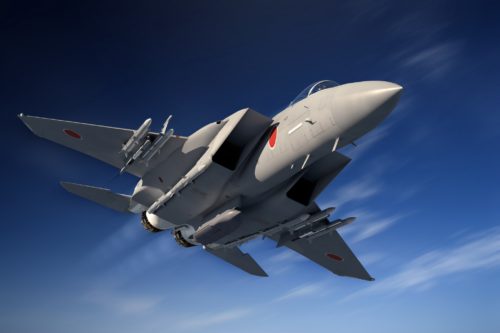Boeing has clinched a significant contract worth $474.5 million from the Pentagon, marking a major development in the defense industry. This contract, awarded to Boeing’s St. Louis, Missouri facility, is set to bolster the capabilities of Japan’s F-15 Japan Super Interceptor program.

Graphic: Boeing
The core objective of this contract is to enhance the Japan Air Self Defense Force’s (JASDF) capabilities through the integration of the Eagle Passive Warning Survivability System (EPAWSS) on its F-15J fleet. This Foreign Military Sales (FMS) initiative signifies a robust collaboration between the United States and Japan in ensuring regional security.
The EPAWSS is a cutting-edge, all-digital system that equips the F-15 with a comprehensive suite of features, including radar warning, geolocation, situational awareness, and self-protection solutions. This system is specifically engineered to detect and neutralize both surface and airborne threats across a spectrum of operational environments, even in highly contested and dense signal scenarios.
One remarkable feature of the EPAWSS is its compact and lightweight design compared to previous Electronic Warfare (EW) systems for the F-15. Its adaptability for future upgrades ensures that it remains at the forefront of technological advancements, offering a longer service life and improved reliability while simultaneously reducing lifecycle costs. This combination of benefits ensures that the F-15 remains a highly effective platform not only in the present but also well into the future.
The EPAWSS serves as a defensive system designed to furnish F-15 aircrews with real-time situational awareness and robust countermeasures against radio frequency (RF) surface and airborne threats. It achieves this by seamlessly integrating and replacing three of the F-15’s legacy Tactical Electronic Warfare System (TEWS) components: the AN/ALR-56C Radar Warning Receiver, AN/ALQ-135 Internal Countermeasures Set, and AN/ALE-45 Countermeasures Dispenser Set.
Key to its functionality, the EPAWSS employs radar warning capabilities to scan the RF environment, providing the aircrew with critical identification and location information regarding potential threat signals. If a threat is identified, the system can respond rapidly with effective countermeasures such as jamming or expendables to neutralize the threat radar or missile.
This contract represents a pivotal moment for the F-15 Japan Super Interceptor program and strengthens the defense partnership between the United States and Japan. Boeing’s expertise in cutting-edge defense technology continues to play a crucial role in maintaining regional security and ensuring that the F-15 remains a force to be reckoned with on the global stage. The work on this contract is expected to be completed by December 31, 2028, solidifying its significance in the coming years.
For more information, hit the Source below